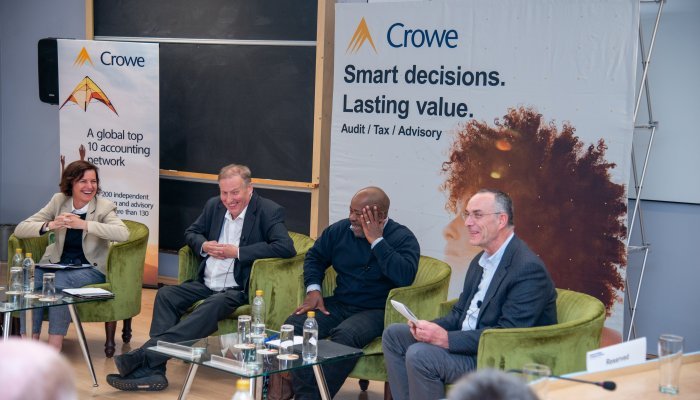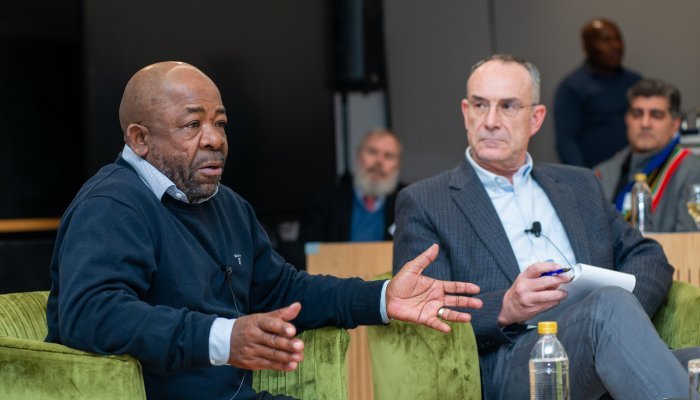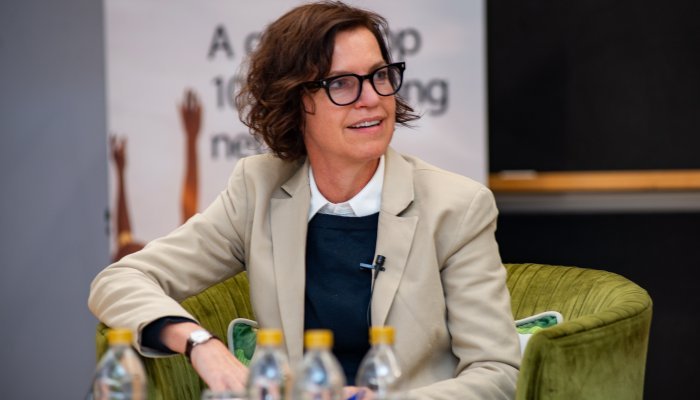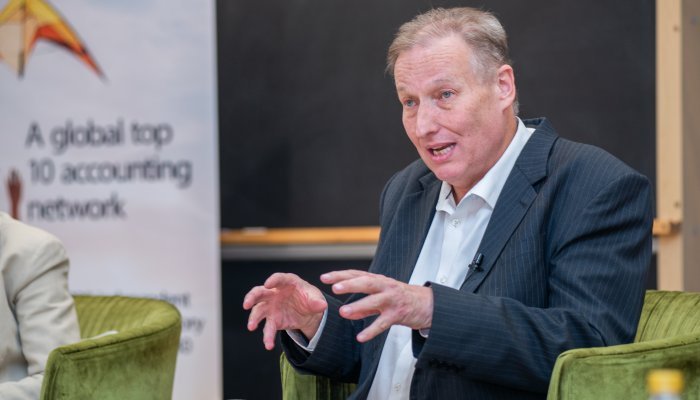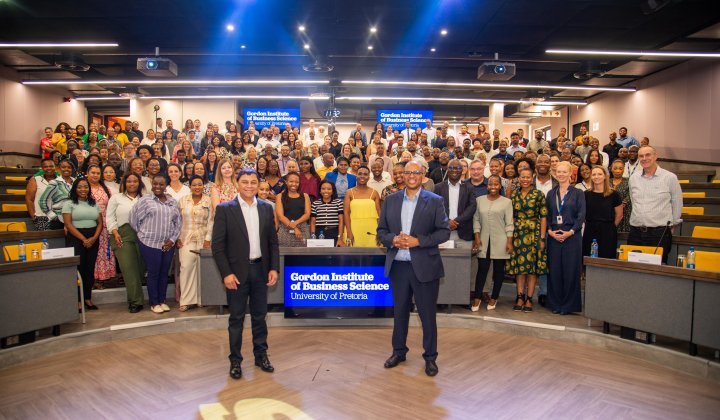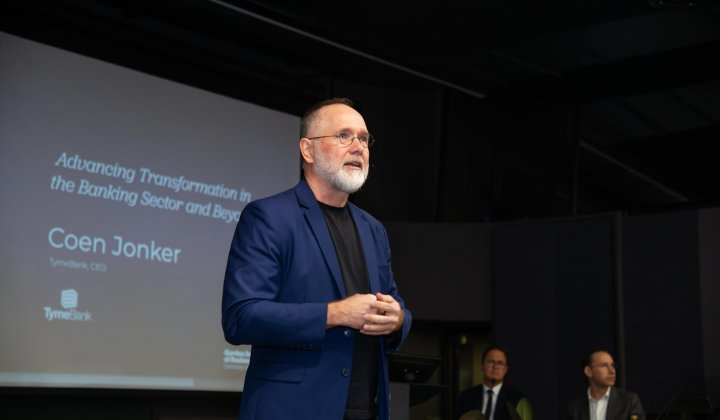There was plenty to discuss when GIBS and the Crowe Group hosted a post-election analysis forum. Led by GIBS’ Prof. Albert Wöcke, the discussion centered on the prospects for the new government of national unity, and the economic road ahead.
“We are moving into uncharted territory,” the former vice-chairperson of the Independent Electoral Commission, Terry Tselane, told the panel. He argued that basing coalition agreements on good faith alone was risky, and that concrete incentives and disincentives should be put in place to motivate the parties to stay the course.
“Political parties have shown they don’t have the maturity and the capacity to manage themselves, and therefore they will not be able to have the capacity to manage the relationships amongst themselves,” Tselane said. He called for the establishment of an independent body to monitor the coalition government.
Policy reform for economic growth and poverty alleviation
Economist Chris Hart said the market had “certainly responded very well to the government of national unity”. However, he cautioned that any change in policy direction would be difficult to agree on.
“We’ve got two years to prove to the electorate that the ‘sensible centre’ is where the solutions to people’s lives are. This can only be done by reducing unemployment, poverty and inequality.”
Conditions for a national dialogue
Co-founder of Rios Partners Colleen Magner said the “real sense of hope” in the country after the elections meant the time was right for a national dialogue. “We need to find each other. National dialogues haven’t reached their full potential in South Africa yet, as they have often been convened by the status quo, or the party in power,” she explained.


